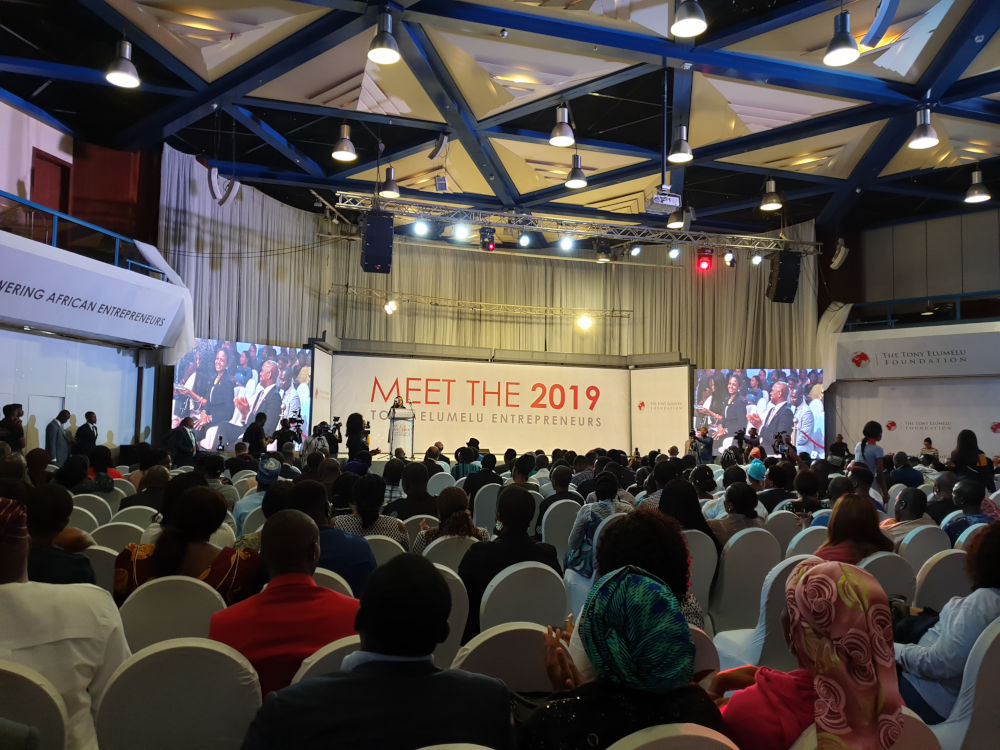Announcement of the 2019 cohort of the TEEP programme

On March 22, 2019, The Tony Elumelu Foundation (TEF) organised the announcement of the new entrepreneurs selected to join the Programme’s fifth cohort. Entrepreneurs and former beneficiaries but also representatives of foreign countries, agents of Development Financial Organizations and public figures such as the First Lady of Nigeria met at the Transcorp Hilton Hotel, Abuja.
The afternoon began with two different meetings taking place. On the one hand, the presentation of the selection process, which is partly outsourced to a firm called Accenture Development Partners. Most officials attended this presentation while entrepreneurs and beneficiaries were listening to a panel of five former beneficiaries interviewed on the scene of the Congress Hall invited to tell their “success story”. Finally, later on in the afternoon, guests gathered around the main scene to follow the selection announcement. The originality of the announcement was undoubtedly the number of beneficiaries: 3,050 entrepreneurs around the continent. While the TEF supports 1,000 entrepreneurs, its partners (African Development Bank, United Nations Development Programme, Red Cross, the Benin Republic among others) help 2,050 additional entrepreneurs.
The main objective for the two researchers was to make contacts with entrepreneurs and benefit from their contacts with other beneficiaries as to reach them more easily once on the field in Nigeria, Kenya, Cameroon and Cote d’Ivoire. The assumption was that using interpersonal networks would be complementary to the exhaustive database given by the TEF. It would thus help to have complementary information on beneficiaries (failure or success, migration…) and maybe target those reluctant to reply to formal contact through emails.
However, most of the entrepreneurs present this day were Nigerian. Even though this is not surprising as the event was taking place in Abuja, it underlines one macro characteristic of the Programme: the share of Nigerian beneficiaries, though variable depending on the cohort, is always preponderant. In 2015, 2016 and 2017, Nigerians represented respectively 49,7%, 59,1% and 57% of the beneficiaries.

Social Media
Mailing List